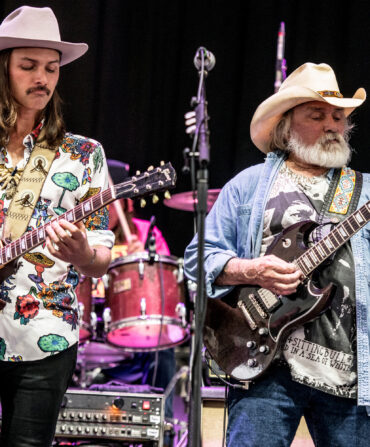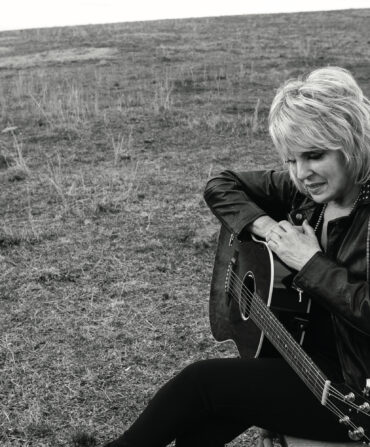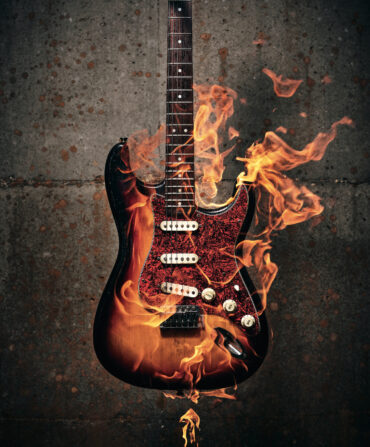Artists
Amy Ray Goes Country
Best known as one-half of the folk duo Indigo Girls, the Georgia native is reaching back to her Southern roots
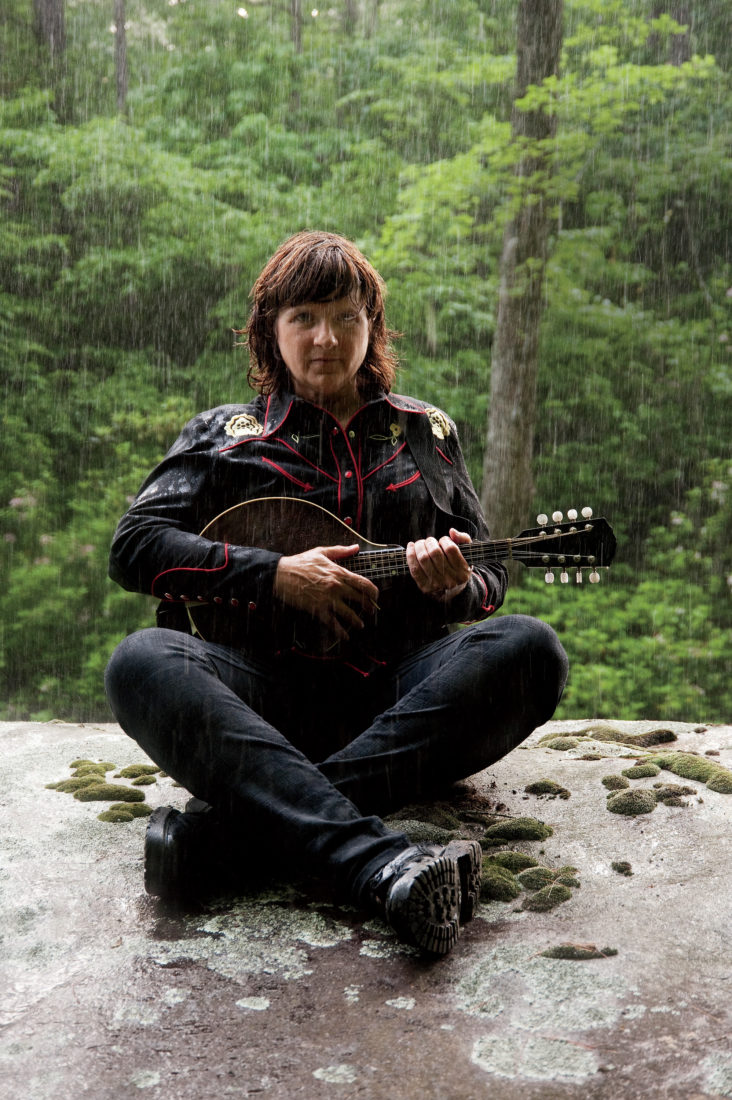
Photo: Jim Herrington
Amy Ray wants to use the busted piano. “Just for the hell of it.” She likes the sound of age and damage. She is suspicious of perfection. Besides, she argues, “the pedal steel will make everything sound in pitch.”
The engineers at Asheville, North Carolina’s famed Echo Mountain recording studio (aka the Church) waste no time complying. They are accustomed to Ray’s peculiarities. And to being wrong when they doubt her instincts will pan out. Jeff Fielder takes a seat at the vintage piano and starts to play. Ray, who
is forty-nine, lifts her chin to the ceiling, eyes in a discerning squint. “That’s more like it,” she says. “Only a little less Bruce Hornsby, a little more Dusty Springfield.”
Fielder, sweating slightly through his T-shirt, adjusts immediately, pulling the notes like taffy. Ray starts to giggle.
“That’s the other side of the Oreo cookie!” she shouts, delighted.
She begins to sing one of the tracks from Goodnight Tender, which will be her first country album, and the Church is instantly in session, Ray’s voice blooming into the space like the Holy Spirit itself.
This life, it ain’t long
This life, it ain’t even long,
But it sure is strong.
Come on and take a ride with me
And you will see.
No one sounds like Amy Ray. You are swept away by her singularity every time you listen to her, which is ironic, given that most of her popular success has been as half of a pair.
Indigo Girls, the Grammy-winning folk duo (with Ray’s friend from grade school Emily Saliers), defined the late eighties and early nineties, providing a sound track not only to latent feminists not buying what Madonna was selling, but also to a generation of burgeoning songwriters who had no idea you could talk about politics and love in the same verse. Theirs was not dreary, soporific folk music. Ray and Saliers leavened the coffeehouse genre with self-deprecating humor, their harmonies soaring over deceptively tricky arrangements, buoyed by the sort of old-school musicianship one only gets from decades of daily practice. The band has sold twelve million records (and counting).
Though Ray is reflexively deferential to Saliers, crediting her as “the better writer, the better singer,” when you listen to Indigo Girls, it is the freight train of Ray’s voice that punches through to your heart, her full-bore intention that sweeps you away. She is Janis Joplin without the tragedy, her voice brimming and bottomless at the same time. Even when Ray thunders, there is no strain, no intimation of cracking, just authority, a resonance without end, timeless and realized, like a river. And you could do worse than to let it run through you and be cleansed.
Come on and take a ride with me
And you will see.
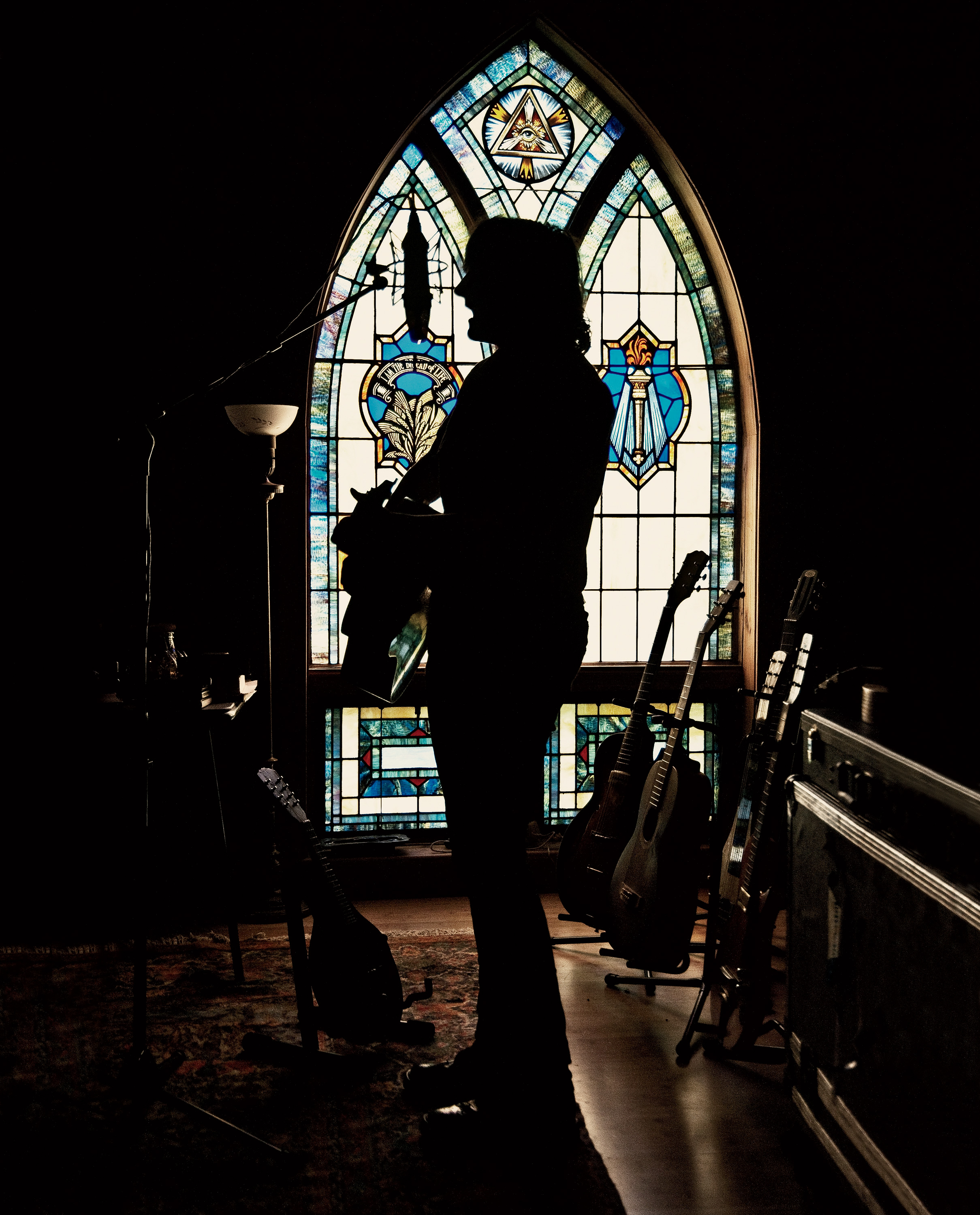
Photo: Jim Herrington
Ray works on lyrics in her home studio. Her new album will be released in January.
Ray draws five syllables out of the last word see. Turns it into a ladder of meaning.
“I think I can do it better,” she says eagerly, swaying on her heels behind her mandolin, her heavy bangs a curtain over her eyes. She looks through the glass at her producer, offers an impish grin. The band starts again.
“I’m a workaholic,” Ray confides two hours later during a rare respite. “I think there is a thing where writers and poets are more creative later in life, and women too, as a function of having had to spend their early years raising kids.”
She leans back in her chair, drains a can of diet soda.
“I really do feel like a late bloomer. I didn’t figure out how to put everything together that is inside of me until my late thirties.”
Her producer rolls back the tape, and Ray ponders over her own voice.
“I guess I feel grown up. But I don’t feel old or done. There is a myth in the music industry about productivity eroding with age. But I think Emmylou and Patti Smith are disproving all that.” She smiles wryly. Over the speakers, she sings:
Half of my life is gone for sure
The other half—God willing—occurs
With just enough left to hope and hurt
And just enough sense to know
There are some things that I can’t save now
But I thank the Lord anyhow.
“Makes you sad, doesn’t it?” she muses, eyes lit with joy.
As a little girl, Ray was obsessed with David Cassidy. “I wanted to be him,” she recalls, laughing. She remembers watching The Partridge Family on television in her family home in Decatur, Georgia. The Monkees too. “TV music,” she says. “That was my first influence.”
During this period, Ray’s grandmother wrote a letter to Hee Haw to see if they’d allow her granddaughter to be a guest on the show. They would not.
Ray’s older sister, Laura, played guitar. “Eat a Peach was a really big record in our house,” Ray remembers. All the Ray children were required to take three years of piano, but Amy, like her sister, preferred guitar.
“I learned ‘Tom Dooley.’ I sang a lot with my youth group. And then, when I was ten, I met Emily.”
The two played church shows. They performed for their English class, school talent competitions. “Young people now think about being stars. But we never did.”
Ray knew she wanted to sing, to tell stories. She did not envision music as a career. “I’m practical.” She believed then what she believes now, that she is “lucky to be part of a working-class band.”
She and Saliers still tour, sometimes with an orchestra. Ray also hits the road for her solo work, such as the forthcoming Goodnight Tender (to be released in January 2014), the album that perhaps digs deepest into her roots.
“I’ve been writing country songs for years, throwing them on the pile,” she says, answering the query “Why now?” “Six years ago, Brandi Carlile and I were playing gospel songs and working on harmonies for fun, and I started thinking about doing a country album then. It takes me a long time to brew on something before I do it.”
Country suits Ray. Obsessed with phrasing, she understands how worlds can be communicated in one simple verse or in the waterfall of a single word sung right. She croons Hank Williams: “My bucket’s got a hole in it.” Shakes her head. “I mean, ancient Egyptians would be singing that if it existed back then!”
Ray is walking a deer path near her home, an eighty-acre property abutting the Etowah River, not far from where she attended Bible camp as a kid. She has always been happiest in the woods, knees dirty, shins scraped. For years she intended to traverse the length of the Appalachian Trail, a goal that gave way only when Ray realized she could never be without her dogs for that long. “I also wanted to raft the entire Mississippi River, but it is okay if that doesn’t happen either,” she jokes.
After an hour hike with three of her five rescue mutts, Ray and her partner, the actor and filmmaker Carrie Schrader, take in the fading sun from the deck. They talk about a recent hateful comment they read on a website. Ray wants to call the poster and “talk it out.”
“She sees the best in everyone,” Schrader says, and sighs affectionately. “It’s annoying.” (As she says this, Ray is rescuing a wasp trapped under a chair leg.) “She’s trying to save these two-hundred-year-old trees from being cut down by neighboring developers,” Schrader continues. “I try and explain, ‘Most people don’t care about trees the way you do.’”
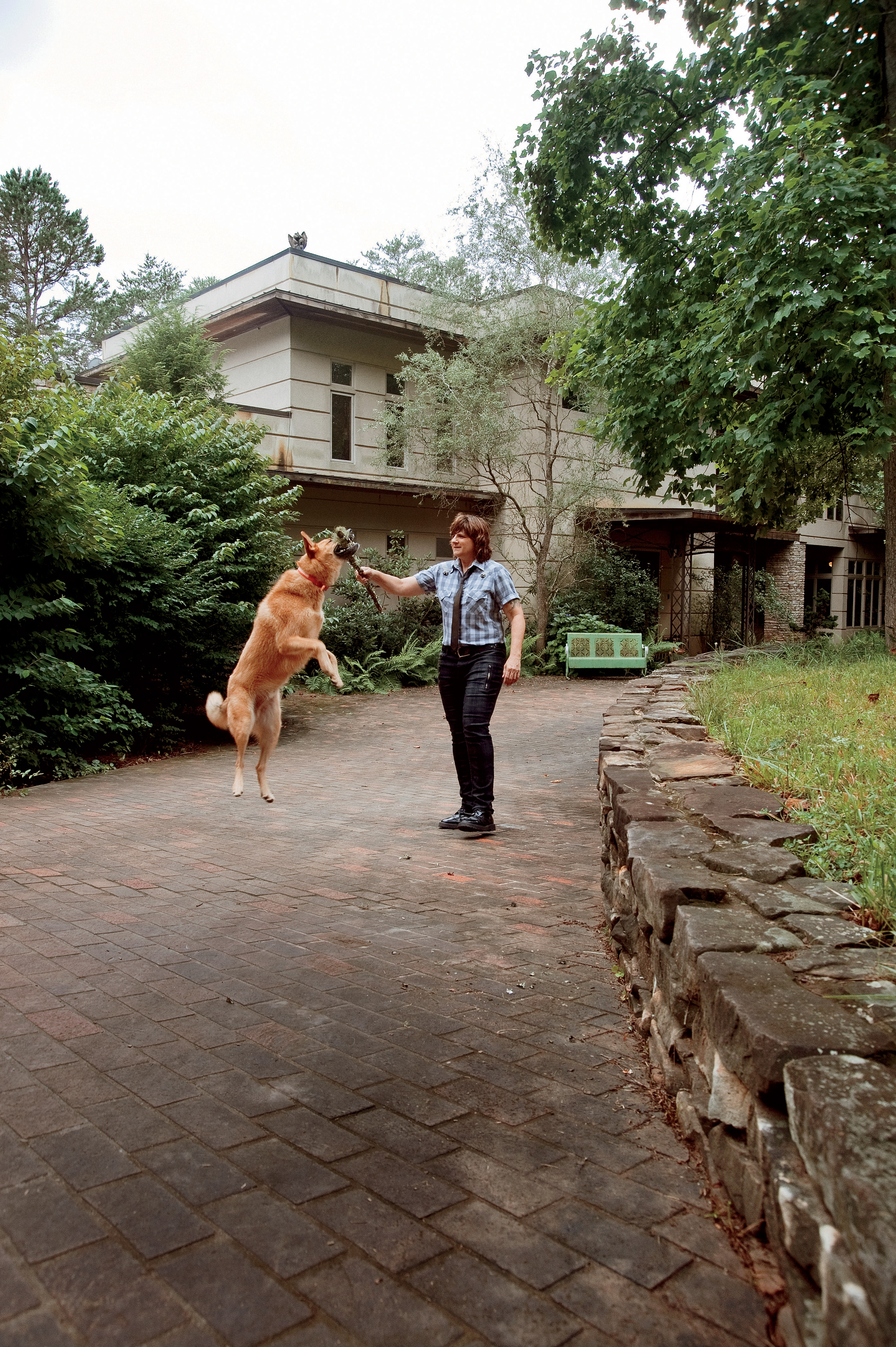
Photo: Jim Herrington
Ray with Tender, one of the five rescue dogs that share her home, and the inspiration for the title of her forthcoming album.
Behind the deck is Ray’s in-home studio, a space filled to capacity with well-loved instruments, a van seat from her tour vehicle, shelves of comics, current literary fiction, treatises on Native American activism. “I was an English and religion major,” she explains. She still reads copiously. Near the bookcases a wall features an installation of stained glass. Ray appreciates the spiritual vibe.
“I believe in God,” she says. “I don’t ask, ‘Why am I here?’ I say, ‘I am here!’ And I need to make it work.”
Following dinner at a local pub, Ray relaxes at the worn wooden dining table in her homey kitchen. Schrader sits beside her in her sock feet, sipping hot tea.
“Part of the reason I work all the time is because I hate the idea of dying,” Ray reveals with bracing honesty. “I love life so much.”
She admits there are times when emotion consumes her and she cries onstage, “usually when other people are playing with us, and there is an exchange.” She also has been known to weep when she and Saliers share the stage with an orchestra. Or when she ruminates too deeply on the narrative of her songs. “I’m always thinking about the story when I’m singing.” And of course, “I cry all the time in church singing hymns.”
Talk veers toward what it means to be Southern, to the innate spirituality of the region, something Ray calls “its fiber.”
“Being Southern means everything to me,” she enthuses. “It is the first thing that comes to my mind about myself. Before singer, before white, before gay, before activist, before woman. Being Southern means that you’ve had to grapple with all the dark things.”
Ray’s people hail from Alabama, South Carolina, Kentucky, Georgia. Early kin traveled west to California, found it wanting, and quickly returned home, a fact that tickles Ray. Her maternal grandmother was born in Atlanta, not far from where Ray was raised.
“It’s not like I don’t understand the intricacies of the Confederacy,” Ray clarifies, lifting her eyebrows. “People ask me all the time, ‘Why don’t you move?’ I tell them the South challenges you more. You have strange bedfellows here. The South makes you question yourself.” She sighs, leans forward. “I guess I’m just attached to it. It’s like my family. With all its problems and dysfunction, I still wouldn’t want to have any other one.”
It is the last day of recording, and Ray has been joined in the Church by Justin Vernon of Bon Iver, as well as Durham, North Carolina–based Phil and Brad Cook of Megafaun. They are waiting for Mount Moriah’s Heather Mc-Entire, who will swing by in an hour bearing her three-legged dog and vegan apple pies her mama baked.
While they prep to record, Vernon and the Cook brothers fiddle with the arrangements, improvising. After one vocal, Ray whoops, “Y’all sound so great, like the Oak Ridge Boys!” To which Vernon hisses, “Yessss!” forming his hand into a fake pistol and blowing the phantom smoke off the business end with a flourish.
“You are writing some spiritual s**t right now,” Phil marvels, reviewing Ray’s lyric sheets. “I have chills. My scalp is tingling.”
Ray admits she wasn’t sure the guys would want to play with her. “I thought y’all might be too cool.”
All three scrunch their faces in disbelief. Vernon launches into a story about hearing Ray sing for the first time as a teenager in Wisconsin, how her songwriting blew a hole wide open in what he believed was possible.
“I literally feel like I’m who I am as a person because of you,” he says, raking his hand over his thinning hair.
Later McEntire, a vocal marvel in her own right, will echo the sentiment. “I would not be here if it weren’t for Amy,” she says plaintively. “Her songs helped me figure out who I am.”
It is a common theme. How Ray’s willingness to be seen changes everyone who looks. How she is less a rock star than the wisest companion one could ever hope for, sifting through what matters, pulling you up the hill of life. When asked if this is her legacy, Ray snorts.
“I’m not Desmond Tutu. I’m not Joan Baez. When I think about legacy, it is only in a family way. All the generations before me, generations of Southerners. To me, legacy is I own this piece of land on a river and I want every descendant from my huge clan of Rays to know that is a touchstone for them. I don’t concern myself with leaving a mark.”
Five hours into recording, the band stops to eat a meal of take-out curry. They chat about Friday Night Lights, how nostalgic it makes them for high school. “I watched three episodes in a row last night,” Ray says, taking a bite of naan. “I couldn’t stop.”
When Vernon recounts his own improbable football-playing days, everyone laughs, hurriedly shoveling the food into their mouths. They are eager to get back into the studio. To the music. Phil brings up the Allman Brothers, and the whole gang erupts into a spontaneous rendition of “Ramblin’ Man,” harmonizing and drumming their hands across their thighs.
Ray pushes deep into her chair, listening.
“It feels like home in here today,” she says, eyes bright, cheeks flush, unaware that, like the sound of her voice, she makes a home wherever she goes.


